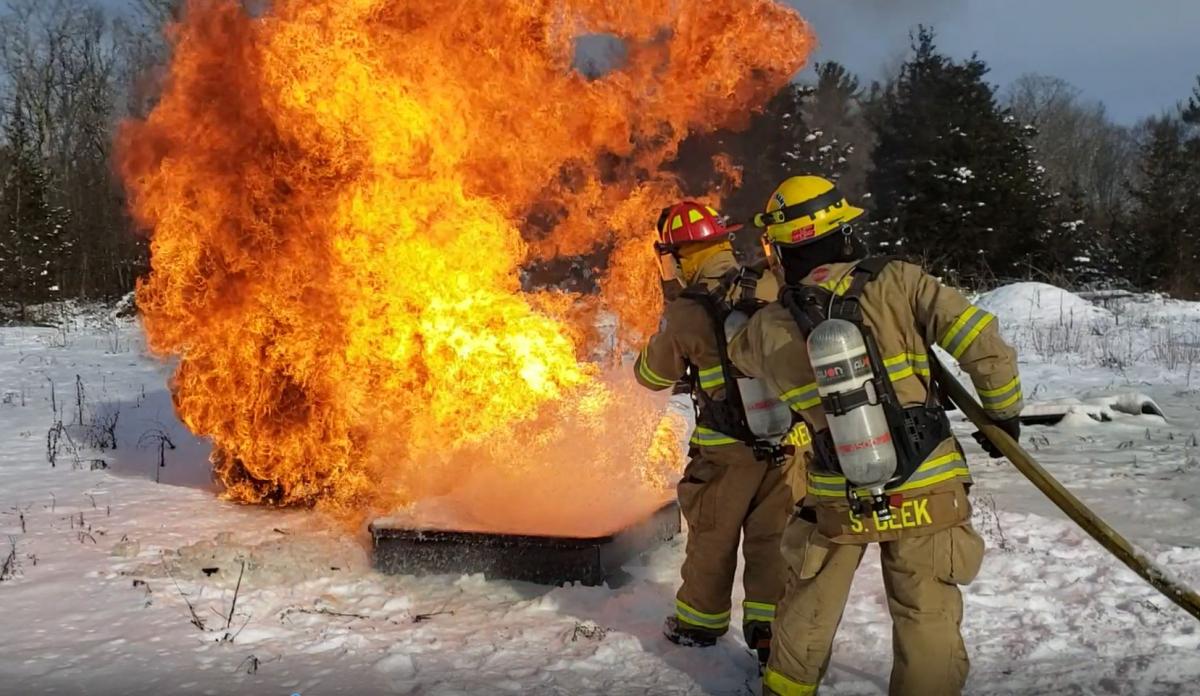Julie Ireton · CBC News ·
Company seeking U.S. approval for non-toxic flame suppressant
As Quincy Emmons and Zackery Hodgen watch the out-of-control bush fires burning in Australia, the two eastern Ontario firefighters believe they have a solution that could help douse those flames.
But their new fire suppressant, developed here and patented in Canada and the United States, needs to pass stringent U.S. regulatory hurdles before it can be dropped from planes or helicopters over wildfires in Australia, California or even here at home.
Their Napanee, Ont., startup, FireRein, convinced friends and family to invest in their product, called Eco-Gel, then convinced volunteer fire departments in the area to test their concoction.
"We wanted to make a product that was safe — safe enough to eat," said Hodgen, FireRein's co-founder and vice-president.
The purely plant-based product is made largely of canola oil, cornstarch and other ingredients commonly found in your kitchen pantry. It resembles a thick salad dressing or creamy honey, and is diluted with water to put out fires.
Before FireRein, Hodgen worked as an industrial paramedic in the oil patch and battled wildfires in Manitoba, jobs that put him in regular contact with fire suppressing products packed with chemicals.
"I had no idea. We didn't wear gloves around those products," he recalled. "We were told it was safe."
Before Eco-Gel can be used to fight wildfires anywhere, it needs certification from the U.S. Department of Agriculture (USDA), considered the industry gold standard. In Canada, every province requires that a fire suppressant be on the USDA's list of qualified products before it's dropped from aircraft. Municipal fire departments don't have the same requirement.
"It does seem a little strange we have to go to the United States to certify our product to have it dropped on Canadian soil," Hodgen noted. "But you do need to have products that are plug-and-play with international jurisdictions."
FireRein is now working with Underwriters Laboratory and the USDA to get the designation it needs to drop Eco-Gel from aircraft as well as for use at airports.
That lengthy process could cost between $500,000 and $1 million. FireRein is hoping sales of its fire prevention spray gels, along with extra help from investors, will help see the company through the U.S. certification ordeal, Hodgen said.
Click Here for Complete Article
Click Here for TV News Broadcast
Click Here for Radio News Broadcast

